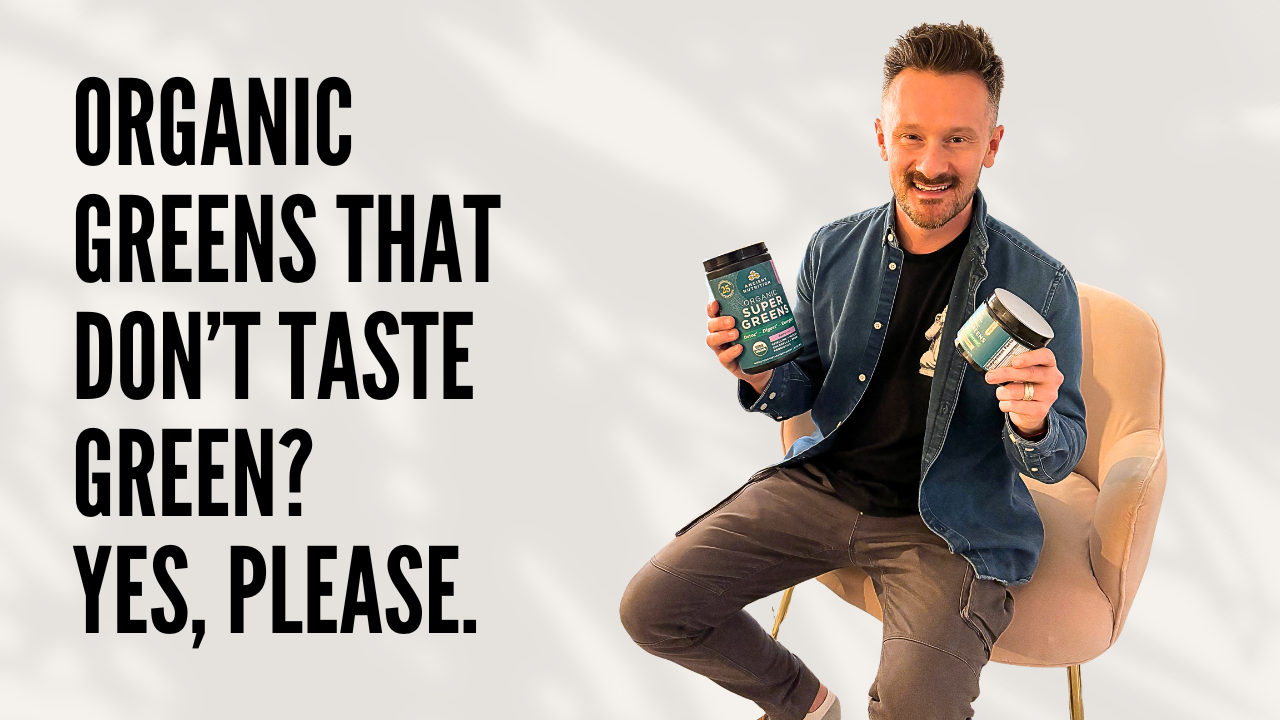How Many Plants Do You Really Need To Be Eating Per Week?
In the early 2000s, we saw smoothie companies singing the praises of the 5 servings of fruit and veggies per day “rule” (even if that meant 4x frozen mango + strawberry ice cream). More recently, I’ve heard people in the health space recommend a different form of herbivore accounting: getting ~30 unique plants in per week. But what counts as a plant? And is this really the best way to get sufficient plant food diversity?
While I appreciate and applaud the sentiment, I’d worry about giving any of my patients this advice blindly. Of course, a wealth of health plant foods is one of the best things we can do for our diet and gut health. And only 1 in 10 Americans are getting the recommended daily serving of fruits and vegetables. But, as with most topics in health, there is a lot of nuance that goes into the making any rule of thumb effective.
Here’s my quick guide to get your 30 plants per week in effectively
Find an organic reputable greens powder to work into your routine.
If you don’t happen to have hours to peruse the stalls at your local market or research seasonal recipes for your daily plant diversity, there are some incredible options to ensure you’re getting your daily and weekly needs met. One of my top recommendations is Ancient Nutrition’s Organic Supergreens. This mix is formulated with USDA Certified Organic ingredients, inclusive of greens, antioxidant fruits, supportive herbs, adaptogenic mushrooms, and resilient & effective probiotics. Make sure to use my Amazon link and enter the exclusive code, 15DrCole for 15% off your order.
Not all plants are created equal.
If you eat 12 types of processed grains per week -- sure those are technically all plants, but you’re not going to get the results you’re looking for. And you’ll be doing more damage than good. And make sure you’ve debunked any common “healthy” foods on your grocery list.
Buy organic and local when possible.
While the organic label at the grocery store is not totally foolproof, it’s at least an indicator that your food was grown without the insecticides, fungicides, fertilizers that can have unintended consequences on your health. If you have the privilege of a local farmer’s market or CSA option, buying local can help you fill your fridge with more nutrient-dense, real food.
Don’t forget about mushrooms.
Not a fruit or a veggie, but in my book mushrooms count! Plus, they’re low in calories and rich in essential nutrients like B vitamins, potassium, and selenium. You can learn more about the superpowers of mushrooms here.
And don’t overlook herbs and spices!
Yes, these count as well! And not only make your meals entirely more interesting and delicious, but can add bunches of health benefits too. Depending on your health goals and needs, you can target your choices to help reduce inflammation, increase energy, and improve cellular health.
Start Your Health Journey Today
FUNCTIONAL MEDICINE CONSULTATIONS FOR PEOPLE AROUND THE WORLD
The information on this website has not been evaluated by the Food & Drug Administration or any other medical body. We do not aim to diagnose, treat, cure or prevent any illness or disease. Information is shared for educational purposes only. You must consult your doctor before acting on any content on this website, especially if you are pregnant, nursing, taking medication, or have a medical condition.
Our content may include products that have been independently chosen and recommended by Dr. Will Cole and our editors. If you purchase something mentioned in this article, we may earn a small commission.

BY DR. WILL COLE
Dr. Will Cole, DNM, IFMCP, DC is a leading functional medicine expert who consults people around the globe, starting one of the first functional medicine telehealth centers in the world. Named one of the top 50 functional and integrative doctors in the nation, Dr. Will Cole provides a functional medicine approach for thyroid issues, autoimmune conditions, hormonal imbalances, digestive disorders, and brain problems. He is also the host of the popular The Art of Being Well podcast and the New York Times bestselling author of Intuitive Fasting, Ketotarian, Gut Feelings, and The Inflammation Spectrum.

Gut Feelings
Healing The Shame-Fueled Relationship
Between What You Eat And How You Feel

